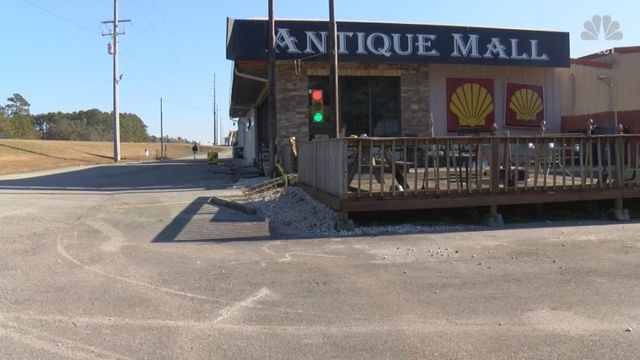Teen killed after hand grenade bought at NC antique mall explodes
A teenager in Virginia was killed two days before Christmas after a World War II-era hand grenade that was thought to be inactive exploded, the authorities said.
Posted — UpdatedA teenager in Virginia was killed two days before Christmas after a World War II-era hand grenade that was thought to be inactive exploded, the authorities said.
The federal Bureau of Alcohol, Tobacco, Firearms and Explosives said the grenade was likely purchased from Fancy Flea Antique Mall in Shallotte, North Carolina, in June.
It said other grenades were “possibly sold from the same vendor in June” and that law enforcement officials were “concerned the grenades purchased from the vendor may contain live explosives and could be hazardous to the public.”
The authorities may be unable to determine the exact number of grenades sold at the mall in Shallotte, a coastal town nearly 100 miles south of Fayetteville, because the transactions were made in cash during the busy summer season, a bureau spokesman said.
A similar-style grenade that was sold around the same time “has yet to be accounted for,” the spokesman said.
In a statement, the mall said “there was only one other grenade sold the next day by the same vendor,” that it was “very sorry that this has occurred,” and that “we all felt that the grenade was inert.”
The grenade’s chain of ownership before its sale at the mall is unclear.
The MK2 grenade exploded Dec. 23, the bureau said, killing the teenager in Abingdon, Virginia, a town in southwest Virginia near the Tennessee border. The bureau did not identify the teenager and it was not clear whether the teenager was the one who had bought the grenade.
The spokesman for the bureau, which is helping the Abingdon Police Department in the investigation, said officials had spoken with the mall. The Police Department did not respond to a request for comment.
Active grenades can fall into the wrong hands after former members of the military keep them as wartime souvenirs, said Bob Morhard, an explosives safety consultant in North Carolina.
“Who knows what happens to them afterward?” he said. “Grandpa’s box somewhere, and someone thought they can sell them on consignment.”
The mall should not have taken the device if it was offered, or should have called the authorities to investigate when the grenade came into its possession, Morhard said.
There are “a lot of subtle cues” that can show a grenade is still dangerous, he said.
The grenade that exploded in Virginia was likely noticeably heavy, he said, adding that inert grenades, having been cleared of the explosive material inside, often have a hole to “see in the cavity that it’s empty.”
More than 20 million MK2 grenades were manufactured from the 1920s until a new model replaced it in the late 1960s, Morhard said. Its “pineapple” casing is “designed to fragment” when it explodes, he said.
A three- to five-second delay precedes the explosion after the pin is pulled, he said. The grenade’s explosion is lethal within a 16-foot zone, Morhard said, and within a 50-foot zone, injuries can “vary from life-threatening to maybe nothing.”
Copyright 2024 New York Times News Service. All rights reserved.






